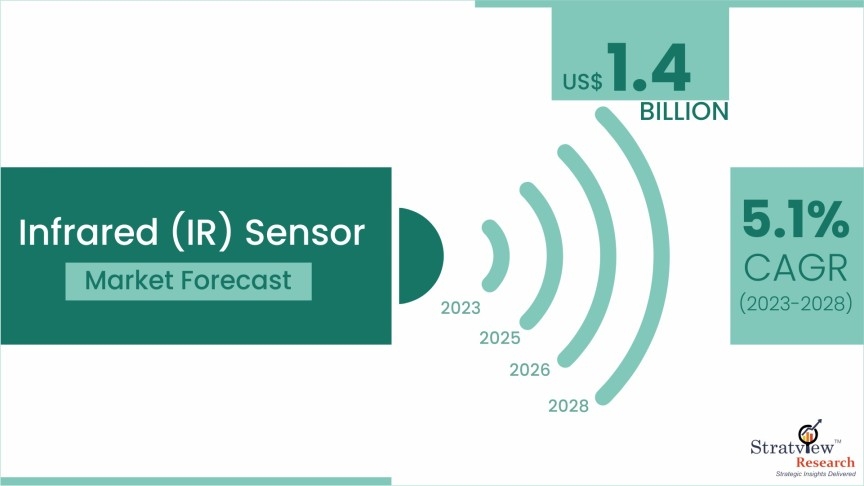Infrared Sensor Market: Driving Innovation in a Contactless World

Infrared (IR) sensors have evolved from niche components to critical enablers across a wide range of industries—from smartphones and smart homes to industrial automation and defense systems. These sensors detect infrared radiation and enable functions like temperature sensing, motion detection, facial recognition, and thermal imaging.
According to Stratview Research, the infrared sensor market is expected to reach USD 1.4 billion by 2028, growing at a CAGR of 5.1% between 2023 and 2028. This growth is fueled by rising demand for automation, safety, and non-contact technologies in a post-pandemic world.
Key Market Drivers
- Smart Device Integration: IR sensors are now integral to smartphones, tablets, and wearables, powering features like gesture recognition, proximity sensing, and thermal monitoring.
- Rise in Industrial and Factory Automation: With Industry 4.0 adoption accelerating, IR sensors are deployed for real-time monitoring, process control, and predictive maintenance.
- Smart Home Expansion: From motion-activated lighting to HVAC controls and home security, IR sensors are essential components in smart building ecosystems.
- Defense and Surveillance: Thermal imaging and night vision capabilities are vital in military, border security, and law enforcement applications.
- Healthcare Advancements: Infrared thermometers, diagnostic tools, and patient-monitoring systems have gained traction, particularly post-COVID.
Segment Analysis
The infrared sensor market can be segmented by product type:
By Product Type
- Thermal Detectors: Widely used for non-contact temperature measurements, gas detection, and motion sensing. Expected to witness the fastest growth due to increasing use in consumer and industrial applications.
- Thermal Imaging Devices: Used in military, surveillance, and automotive night vision systems. Currently dominates the market in terms of revenue.
Market Trends to Watch
- Sensor Fusion and AI Integration: Combining IR sensors with AI and other sensing technologies (like LiDAR and ultrasonic sensors) enables advanced applications in autonomous vehicles and robotics.
- Miniaturization and Energy Efficiency: Manufacturers are focusing on compact designs with ultra-low power consumption to enable integration into small, portable, and battery-powered devices.
- Emerging Applications in Automotive ADAS: IR sensors are being used for driver monitoring, blind-spot detection, and in-cabin temperature regulation—contributing to safer and more intelligent vehicles.
- Wider Adoption in Wearables and Health Tech: Non-invasive IR sensing for real-time monitoring of vital signs is a fast-growing segment in personalized healthcare and fitness devices.
- Increased Deployment in Emerging Markets: Rapid industrialization and government-led smart infrastructure projects in Asia-Pacific and Latin America are driving demand for IR sensor technologies.
Conclusion
The infrared sensor market stands at the crossroads of innovation and adoption. As industries worldwide embrace automation, safety, and contactless interaction, the demand for advanced IR sensing technologies continues to rise. Companies investing in R&D, miniaturization, and AI-enabled sensing solutions are well-positioned to lead in this dynamic landscape.
The future is contactless, and infrared sensors are at the heart of it.
- Art
- Causes
- Crafts
- Dance
- Drinks
- Film
- Fitness
- Food
- Games
- Gardening
- Health
- Home
- Literature
- Music
- Networking
- Other
- Party
- Religion
- Shopping
- Sports
- Theater
- Wellness


